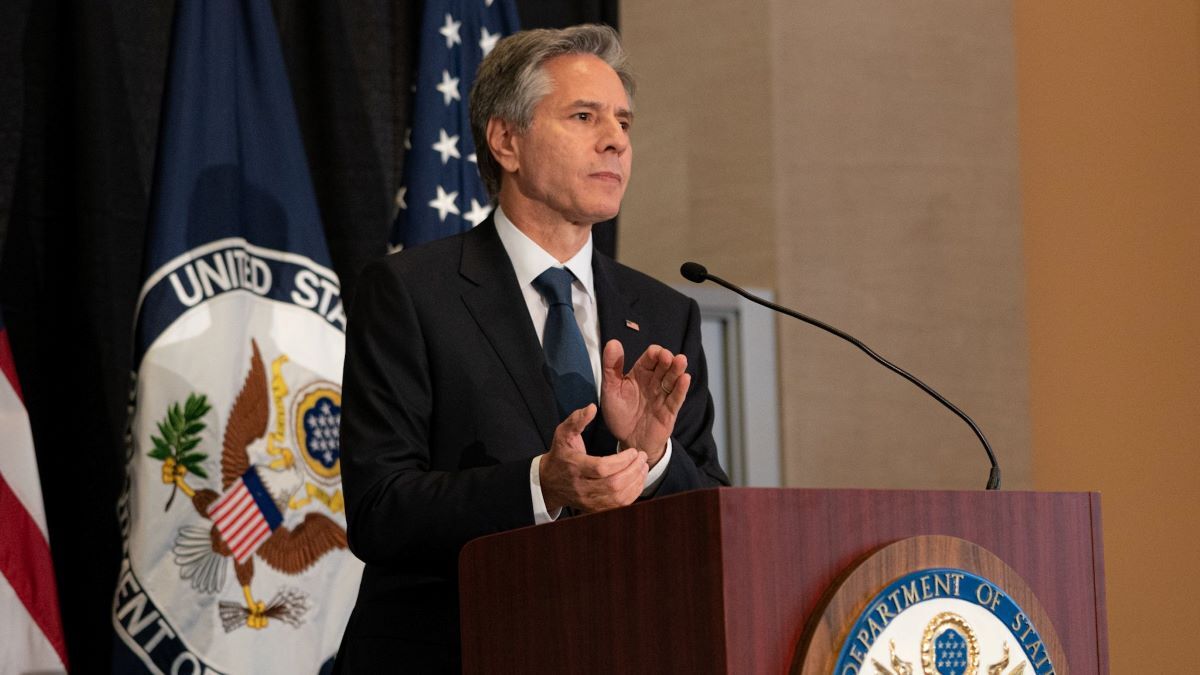The United States supports the efforts of the European Union (EU), the Group of Seven (G7) and Australia to restrict Russia's ability to finance its war against Ukraine by capping the price of Russian oil exports, according to the Department of State (DOS).
"We welcome the work by the EU to stabilize energy prices while reducing Russia’s revenue from energy exports, crippling its ability to finance its unjustified war in Ukraine," Sec. of State Antony Blinken wrote in a Dec. 2 Twitter post. "The G7, EU, and Australia have now jointly set a cap on the price of seaborne Russian oil."
Blinken was responding to the agreement between the EU's 27 member states, the countries in the G7 (U.S., Canada, France, Germany, Italy, Japan and the United Kingdom [U.K.]) and Australia, collectively called the "Price Cap Coalition" (PCC), to cap the price of Russian seaborne crude oil at $60 U.S. dollars (USD) per barrel. The price will be kept "under review," according to the statement.
The Price Cap Coalition plan allows shipments to continue to prevent crippling smaller nations' supply; however, countries that join the PCC are only allowed to purchase crude oil and petroleum products transported via sea routes that is sold at or below the price cap.
The move is intended "to prevent Russia from profiting from its war of aggression against Ukraine, to support stability in global energy markets and to minimise negative economic spillovers of Russia’s war of aggression, especially on low- and middle-income countries, who have felt the impacts of Putin’s war disproportionately," according to a statement issued Dec. 2 by Canada's Department of Finance.
The November International Energy Associations Oil Market Report reported that Russian oil exports increased in October. Crude oil exports to the E.U. were below pre-war levels. Product exports were down, including 600 kb/d of diesel. But export revenues rose by $1.7 billion to $17.3 billion for Russia.
“The approaching E.U. embargoes on Russian crude and oil product imports, and a ban on maritime services will add further pressure on global oil balances, and, in particular, on already exceptionally tight diesel markets,” according to the report.
U.S. Secretary of the Treasury Janet Yellen stated on Dec. 2 that the move "will encourage the flow of discounted Russian oil onto global markets and is designed to help protect consumers and businesses from global supply disruptions."
"Today’s announcement is the culmination of months of effort by our coalition," Yellen said in the statement, "and I commend the hard work of our partners in achieving this outcome."





